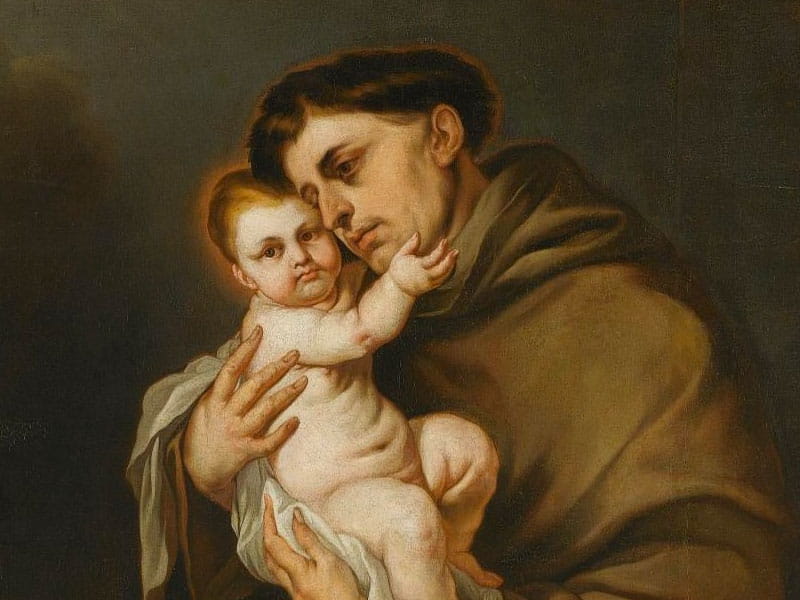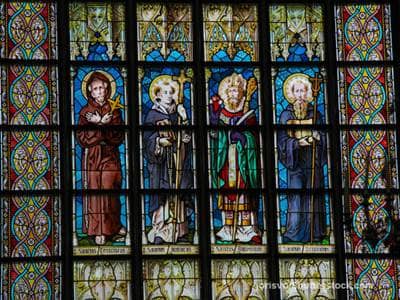St. Anthony of Padua (1195-1231)

The gospel call to leave everything and follow Christ was the rule of Anthony’s life. Over and over again God called him to something new in his plan. Every time Anthony responded with renewed zeal and self-sacrificing to serve his Lord Jesus more completely. His journey as the servant of God began as a very young man when he decided to join the Augustinians, giving up a future of wealth and power to be a servant of God. Later, when the bodies of the first Franciscan martyrs went through the Portuguese city where he was stationed, he was again filled with an intense longing to be one of those closest to Jesus himself: those who die for the Good News.
So Anthony entered the Franciscan Order and set out to preach to the Moors. But an illness prevented him from achieving that goal. He went to Italy and was stationed in a small hermitage where he spent most of his time praying, reading the Scriptures and doing menial tasks.
The call of God came again at an ordination where no one was prepared to speak. The humble and obedient Anthony hesitantly accepted the task. The years of searching for Jesus in prayer, of reading sacred Scripture and of serving him in poverty, chastity and obedience had prepared Anthony to allow the Spirit to use his talents. Anthony’s sermon was astounding to those who expected an unprepared speech and knew not the Spirit’s power to give people words.
Recognized as a great man of prayer and a great Scripture and theology scholar, Anthony became the first friar to teach theology to the other friars. Soon he was called from that post to preach to the heretics, to use his profound knowledge of Scripture and theology to convert and reassure those who had been misled.
-
Sts. John Jones and John Wall (c. 1530-1598; 1620-1679)
-
St. Gregory Grassi and Companions (d. 1900)
-
St. Adalbert of Prague (956-97)
-
Sts. Pontian and Hippolytus (d. 235)
-
St. John Francis Regis (1597-1640)
-
St. Oliver Plunkett (1629-1681)
-
St. Adrian of Canterbury (d. 710)
-
First Martyrs of the Church of Rome (d. 68)
-
Blessed Junipero Serra (1713-1784)
-
Our Lady of Mount Carmel


